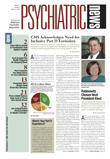The U.S. Department of Health and Human Services (HHS) announced last month the creation of a new public-private partnership. The purpose: to accelerate the identification of genetic causes of illnesses with substantial public impact, such as Alzheimer's disease, autism, obesity, and schizophrenia.
The partnership is called the Genetic Association Information Network (GAIN). It will include the National Institutes of Health (NIH); the Foundation for the National Institutes of Health, which is a non-profit foundation established by Congress to support NIH's mission; Pfizer Global Research and Development of New London, Conn; Affymetrix Inc. of Santa Clara, Calif.; and some other major pharmaceutical and biotechnology companies.
“These are the kinds of innovative efforts that we should support,” HHS Secretary Mike Leavitt asserted in an NIH press release.“ We must seize the historic opportunity provided by the Human Genome Project and the International HapMap Project to speed up the discovery of the genetic causes of common diseases....”
“We've translated early information from genetic research into valuable medicines for HIV/AIDS, heart disease, and the prevention of organ rejection,” Martin Mackay, Ph.D., a senior vice president with Pfizer Global Research and Development, said in the same NIH press release.“ But these advances have only scratched the surface of possible revolutionary approaches to treat and cure disease... .Our hope is that this public/private initiative will encourage a deeper collective understanding of the genetic factors of disease for major new therapeutic advances.”
GAIN will focus on single nucleotide polymorphisms (SNPs)—that is, genetic variants—that can occur in people's genomes. Although most are of no biological importance, a small fraction alter the functions of genes and may increase risk of various illnesses.
Some 10 million SNPs are estimated to exist in the human population. Scanning the genomes of a large number of subjects for such a gargantuan number of SNPs would be prohibitively time consuming and expensive. But fortunately, a major shortcut has been found that reduces the task about 30-fold. The International HapMap Project, led by NIH and completed in 2005, demonstrated that the 10 million SNPs cluster in local neighborhoods, called“ haplotypes,” and that they can be accurately sampled by as few as 300,000 carefully chosen SNPs.
More information about the Genetic Association Information Network is posted at<www.genome.gov/17516707.▪
